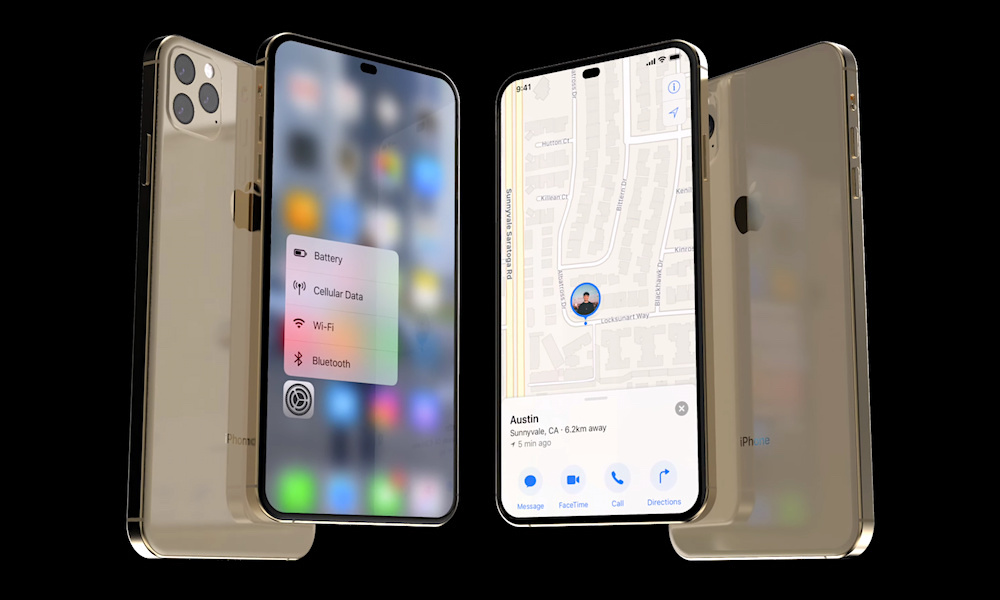Report: 2020 5G iPhones Won’t Cost Much More Than Current Devices
 Credit: EverythingApplePro
Credit: EverythingApplePro
Toggle Dark Mode
Next year’s iPhones are largely expected to pack major upgrades, like 5G connectivity and laser cameras. But, despite that, they probably won’t be much more expensive.
That’s according to a new research note released by TF Securities on Wednesday and penned by well-connected analyst Ming-Chi Kuo. According to Kuo, Apple won’t significantly increase the price of its 2020 iPhones.
iPhone 12 Rumors
The 2020 iPhone lineup is shaping up to be a massive overhaul for Apple’s handsets. For one, Apple is rumored to be developing four new iPhones for release in the fall of 2020 with at least two new screen sizes.
According to the latest rumors, Apple will release two 6.1-inch iPhones, along with a new 5.4-inch device and a “Max” successor with a 6.7-inch display.
One of the 6.1-inch devices will likely be a mid-range handset in the same vein as the iPhone 11, while the other may take the current iPhone 11 Pro slot as Apple’s smaller premium smartphone.
- All four devices are largely expected to feature 5G connectivity and OLED displays.
- They’ll also pack new time-of-flight laser cameras for AR, upgraded Apple A-series chipsets and a metal frame with squared-off edges that will reportedly echo the iPhone 4’s design.
- Some devices may even pack an under-display Touch ID sensor.
With all of these upgrades, many Apple fans could easily see the Cupertino tech giant raise the prices on its 2020 devices — especially since 5G components are pricier. But, as mentioned earlier, Kuo doesn’t expect that to be the case.
How Will Apple Reduce Costs?
Kuo does note that 5G connectivity and the new metal frames will likely raise the production costs of next year’s devices by between $30 and $100 per unit, depending on the model.
But the analyst also notes that Apple will probably try to offset the cost of the 5G components with supply chain strategy, rather than a simple price increase for the end-user.
One way it could do that would be to drop its upfront non-recurring engineering payments, which are one-time costs incurred to research, design, develop and test new components.
For the 2020 lineup, Apple could drop the upfront payment to suppliers of the rumored metal chassis and frame. Instead, Kuo predicts that Apple will bring more of this research and development in-house.
Kuo adds that these one-time supply chain costs have historically helped Apple’s suppliers through the tail end of a release cycle when iPhone sales start to wane. But a rumored change to Apple’s annual release timeline may make those engineering costs nonessential.
According to Kuo and other analysts, Apple may switch to a biannual release timeline in 2020 and beyond. On that schedule, it would hold two annual iPhone keynotes: one in the spring to debut lower-cost iPhones, and one in the fall to unveil its premium ones.
In addition to aiding suppliers and possibly driving down costs, the biannual timeline could also help Apple compete with its Android counterparts that release new devices throughout the year.
[The information provided in this article has NOT been confirmed by Apple and may be speculation. Provided details may not be factual. Take all rumors, tech or otherwise, with a grain of salt.]






